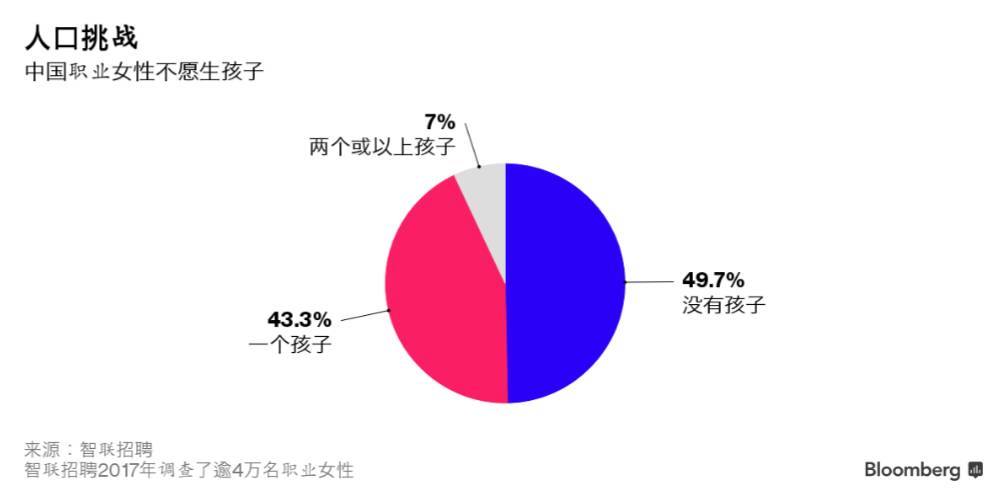origin: Phoenix finance comprehensive
China population timing bomb is still ticking.
although the Chinese government has relaxed the family planning policy, it allows a couple to have two children, but professional women do not want to add new members to their families, or do not have children at all.
the above conclusion comes from one of the largest recruitment websites in China, the latest findings of Zhaopin. The survey found that about 40% of the working women who did not have children did not want to have children. About 2/3 of the working women who had given birth to one child did not want to have a second child. In the front-line cities such as Beijing and Shanghai, the high cost of living, the long working time and the rising cost of raising children have made more women prohibitive for their children.
this phenomenon is not unique to China due to the general pressure of professional women worldwide. But because of the rapid aging of the world's second largest economy, this problem is particularly serious for China. The implementation of the family planning policy for more than 30 years has led to a serious shortage of young people in the growing population of aging population. This situation not only undermines China's competitiveness, but also brings heavy pressure to the social welfare system.

after China announced an overall release of the two child policy in October 2015, officials estimated that by 2020, the number of births would increase by 4 million per year, but last year the population was only 1 million 310 thousand more than the previous year, to 17 million 860 thousand. Faced with this situation, the government is considering the adoption of incentives and subsidies to encourage more people to have two children.
, however, China is still far apart from the package reward package in Singapore or Germany, and an imperfect system of safeguards is a drop in the country's inability to bear children's education and health care spending.
pregnancy may also cause actual financial or job losses. The survey found that 33% of women were paid down after birth, and 36% were demoted.
among women who do not want to have children, the highest proportion is the lack of time and energy, and the cost of raising children too high.